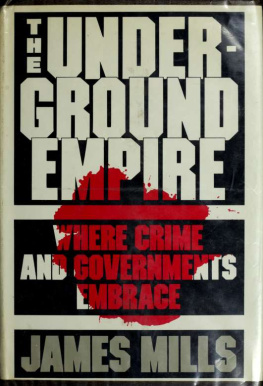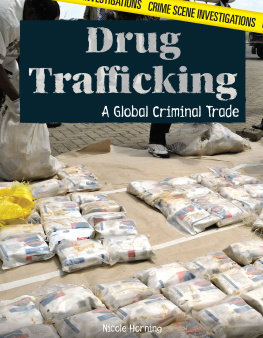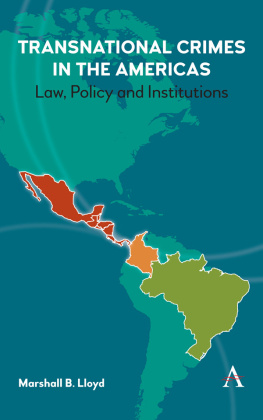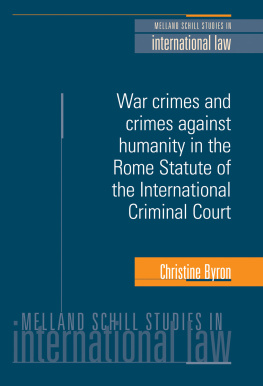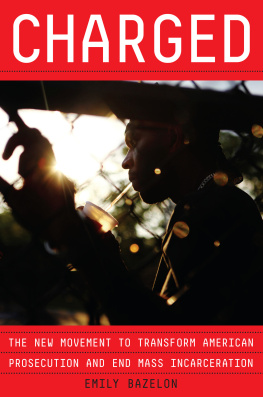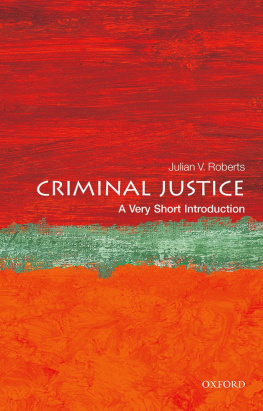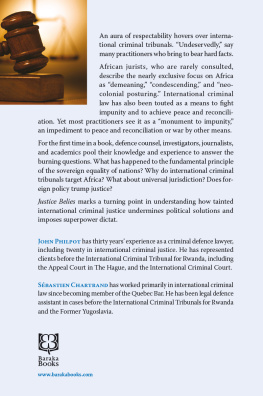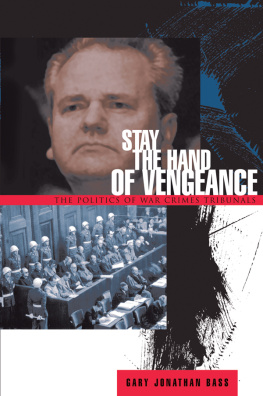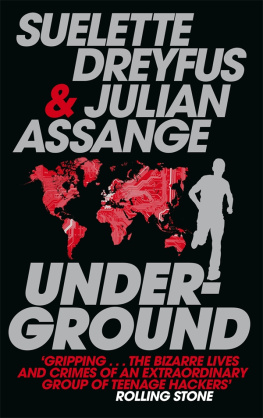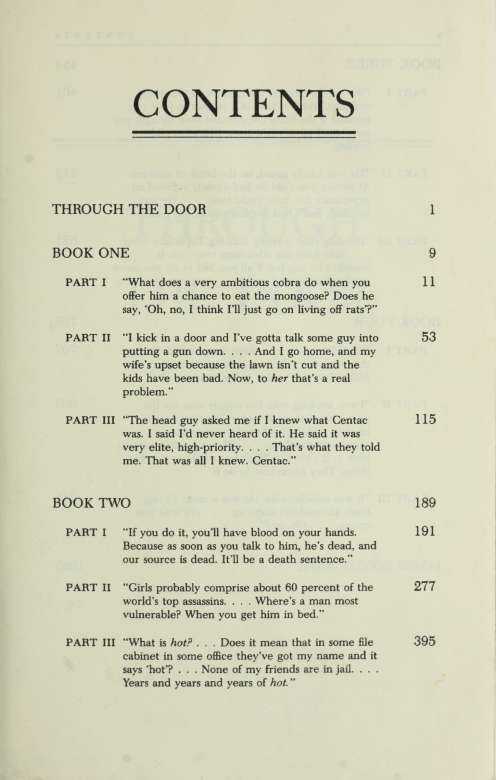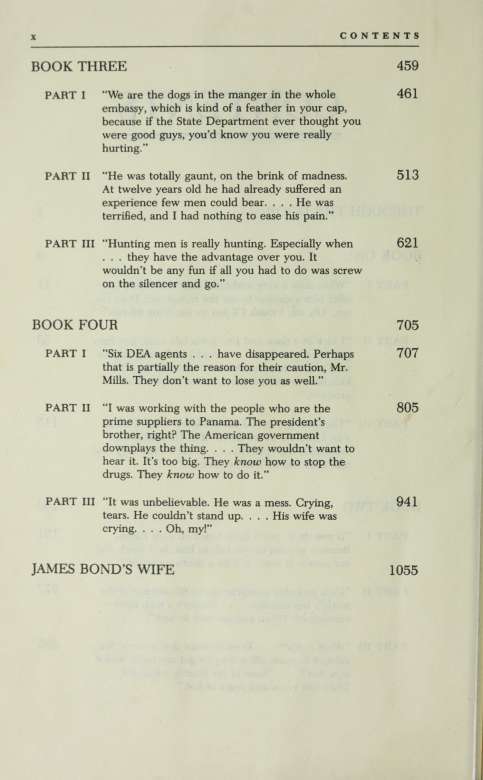This book made available by the Internet Archive.
For James
Digitized by the Internet Archive in 2012
http://archive.org/details/undergroundempirOOmill
TO THE READER
Everything in this book is true. No names have been changed, there are no composite characters, no invented scenes or dialogue.
THROUGH THE DOOR
CHAPTER ONE
The inhabitants of the earth spend more money on illegal drugs than they spend on food. More than they spend on housing, clothes, education, medical care, or any other product or service. The international narcotics industry is the largest growth industry in the world. Its annual revenues exceed half a trillion dollarsthree times the value of all United States currency in circulation, more than the gross national products of all but a half dozen of the major industrialized nations. To imagine the immensity of such wealth consider this: A million dollars in gold would weigh as much as a large man. A half-trillion dollars would weigh more than the entire population of Washington, D.C.
Narcotics industry profits, secretly stockpiled in countries competing for the business, draw interest exceeding $3 million per hour. To what use will this money eventually be put? What will be its ultimate effect?
Though everyone knows narcotics is big business, its truly staggering dimensions have never been fully publicized. The statistics on which the above statements are based appear in classified documents prepared with the participation of the Central Intelligence Agency and the National Security Agency. These studies are circulated in numbered copies with warnings of "criminal sanctions" for unauthorized disclosure. Why is this information withheld from public view?
The international narcotics industry is, in fact, not an industry at all, but an empire. Sovereign, proud, expansionist, this Underground Empire, though frequently torn by internal struggle, never fails to present a solid front to the world at large. It has become today as ruthlessly acquisitive and exploitative as any nineteenth-century imperial kingdom, as far-reaching as the British Empire, as determinedly cohesive as the states of the American republic. Aggressive and violent by nature, the Underground Empire maintains its own armies, diplomats, intelligence services, banks, merchant fleets, and airlines. It seeks to extend its dominance by any means, from clandestine subversion to open warfare. Legitimate nations combat its agents within their own
JAMES MILLS
borders, but effectively ignore its power internationally. The United States government, while launching cosmetic "wars" on drugs and crime, has rarely attacked the Empire abroad, has never substantially diminished its international power, and does not today seriously challenge its growing threat to world stability.
Why is this so? Do the world's governments not want to eliminate this expanding source of criminal wealth and power? Has there in fact never been an attempt to mount a truly effective global assault against it? Has there never existeddoes there not exist todaysome hidden, unpublicized, international force struggling against the Underground Empire?
I arrived through layers of securityuniformed guards with side arms, bulletproof glass, closed-circuit television, magnetic locks, solemn-faced men with pistols concealed beneath three-piece suits, color-coded tags chained to their necksand now my escort knocked on an unmarked door, watched it open, and left me on my own.
I was on the sixth floor of a shabby, featureless building in one of Washington's most notorious wino-junkie neighborhoods. Across the street something called The Olympic Baths advertised "A man's world of pleasure and enjoyment," and "Benny's, home of the porno stars" was just up the block. I stepped through the door and found myself in a cubbyhole office. Mozart played faintly from an unseen radio and potted plants lined the sill of a window that looked down through Venetian blinds to a park filled with snow, squirrels, hookers, and drunks.
A man came at me from behind a pipe-strewn desk, and I knew he was the one I had been asking about, hoping to meet. His name was Dennis Dayle, but his agents called him "D squared," Devious Dennis. To me he looked like Santa Clausplump, rosy-cheeked, eyes sparkling, wearing a wide, welcoming smile that had nothing devious in it. He shook my hand and said, "I hear you've been asking about Centac."
THE UNDERGROUND EMPIRE
CHAPTER TWO
The previous night, at a dinner party in a Washington suburb, I had first heard the word Centac. When I asked what it was, my questions were politely evaded or ignored. But now, without warning or explanation, I had been brought to Dennis Dayle's office for what turned out to be four hours of answers to every question I could think to ask.
After thirty minutes the Santa Claus image faded, replaced by a vision of John le Carre's fictional masterspy George Smiley. Before me was a reserved, pleasant, knowing man who behind a carefully crafted reputation for ruthlessness and cunning concealed an extraordinary past. Driven by a romantic's dreams and passions, studying and conquering the symphonic complexities of global criminal conspiracies, he controlled something called Centacthe most unorthodox, effective, and least-known international police organization in the world.
Intrigued by what he told mewanting to learn more about him, about Centac, and about the powerful criminal conglomerates Centac foughtI asked if I could remain with him, sit in his office, travel with him, observe him and his agents around the world.
The answer came some weeks later, not from Dennis Dayle but from a man named Ted Hunter, chief of the Special Action Section of the Drug Enforcement Administration, who had been given the task of deciding whether or not I should be allowed access to Centac. Whoever it was in the Washington bureaucracy who gave him that responsibility clearly wanted to make sure they'd have someone to hang if things went wrong.
During one of my meetings with Hunter (his nickname, of course, was Head) he stood with his back to me, staring silently out a window of his office, and after what seemed like several hours remarked painfully that all the training and experience of two decades in federal law enforcement told him not to do what I was asking. The possibility of disaster was too great. What if I exposed secret methods and tech

